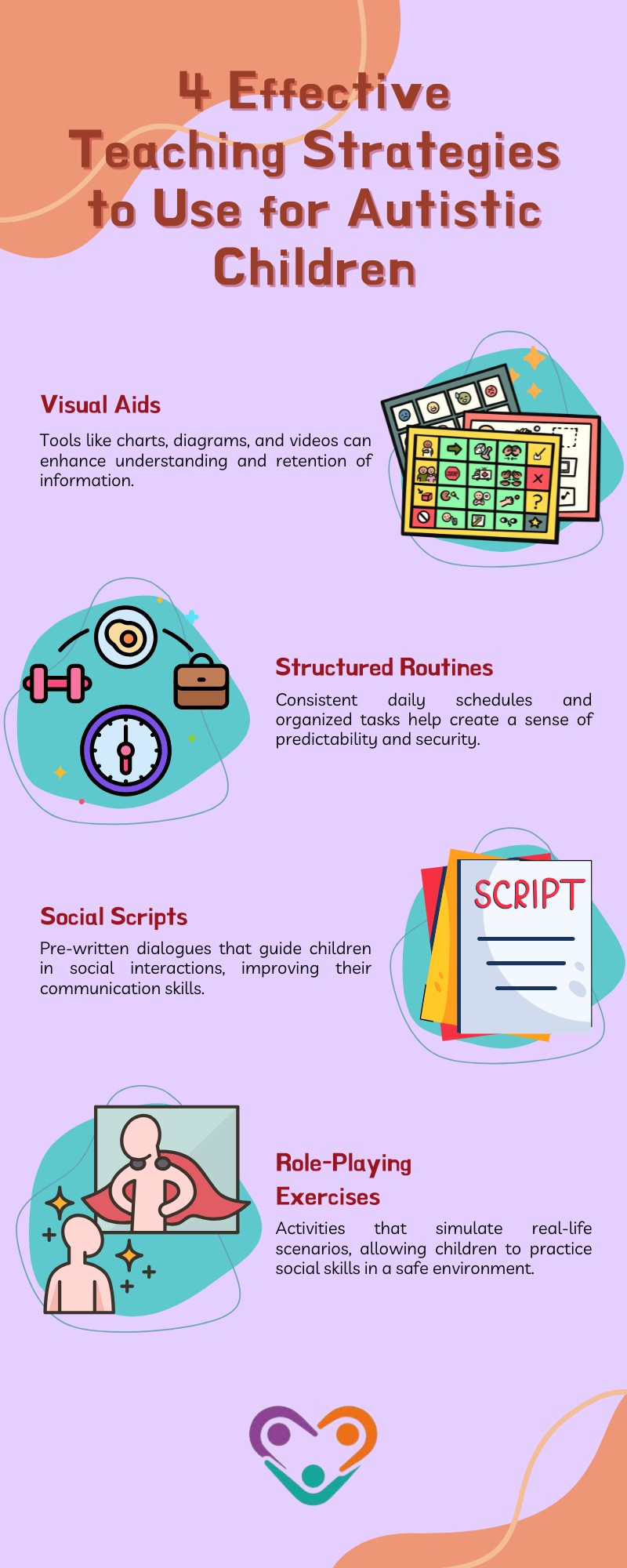Choosing the right educational setting for a child with autism involves careful evaluation. Parents and caregivers must weigh the pros and cons of mainstream schools against specialized options.
Can an Autistic Child Go to a Normal School?
Yes, an autistic child can go to a normal school. Many autistic children attend mainstream schools alongside their neurotypical peers, and with the right support, they can thrive both academically and socially.
Inclusion programs, individualized education plans (IEPs), and classroom accommodations help address the unique needs of each autistic child, making it possible for them to access the same educational opportunities. Teachers, special education staff, and therapists often work as a team to support the child’s development and ensure a positive learning environment.
However, the success of an autistic child in a mainstream school depends on several factors, such as the child’s specific strengths and challenges, the school’s resources, and the level of staff training in autism support.
Some children may need additional help with communication, social interaction, or sensory processing, which can be managed effectively when schools are committed to inclusion.
In some cases, if a mainstream setting doesn’t meet the child’s needs, specialized schools may offer a better fit. The key is finding the right environment that fosters the child’s growth and well-being.

Mainstream vs. Specialized Schools
As previously mentioned, autistic children can attend mainstream schools, but various schooling options should also be considered. The choices available include:
- Mainstream Government Schools: These often have resources for special education, but may vary widely in support levels.
- Mainstream Private Schools: They may provide specialized programs, but tuition costs can be an obstacle.
- Specialist Units within Mainstream Schools: These units leverage the resources of a mainstream school while offering customized support.
- Specialist Government or Private Schools: They focus exclusively on children with autism or similar needs, providing tailored instruction and support.
However, parents and caregivers should consider several factors when determining the best school setting. These are as follows:
- Child’s Unique Needs: Individual strengths and challenges, sensory sensitivities, and communication abilities must be assessed.
- Support Services Available: Evaluate the availability of special education services, individualized instruction, and staff training in autism-related issues.
- Social Environment: Consider opportunities for socialization and peer interaction, which are essential for development.
- Family Preferences: Family values, beliefs about education, and logistical factors like location and transportation should also play a role in decision-making.
Making informed choices regarding educational settings can help provide the best path for children with autism, ensuring their academic and social needs are met.
How to Prepare an Autistic Child for Mainstream School
Preparing an autistic child for a mainstream school involves careful assessment and collaboration to ensure that their unique needs are met. This process is essential for helping the child thrive in a typical academic environment.
When determining if a mainstream school is suitable for an autistic child, it is important to consider various factors. These include the child’s strengths, challenges, and individual learning styles.
Engaging healthcare providers, therapists, and educators in this assessment is crucial. Their insights can help create a well-rounded picture of the child’s needs, ensuring all aspects are considered.
Also, collaboration with the school team is a vital aspect of preparing for mainstream education. This involves working closely with teachers, support staff, and administrators to establish open communication and support for the child.
Furthermore, the success of a child with autism in a mainstream school significantly depends on accommodations. Implementing Individualized Education Plans (IEPs), utilizing specialized teaching methods, and providing assistive technology can greatly enhance the learning experience.
Additionally, support from teachers or aides further promotes an inclusive and effective learning environment, enabling the child to thrive academically and socially.
Benefits of Mainstream Schools
Mainstream schools can offer unique advantages for autistic children. These benefits primarily revolve around social interactions and academic achievements, providing a well-rounded educational experience.
Attending a mainstream school allows autistic children to interact with neurotypical peers, aiding in the development of essential social skills and fostering meaningful friendships.
Inclusive education plays a crucial role here, as it ensures that students with disabilities, including autism, are educated alongside their peers in regular classrooms. This setting enhances social interaction, boosts self-esteem, and promotes a strong sense of belonging.
At the same time, exposure to a standard curriculum in mainstream schools can help autistic children maximize their academic potential.
Many autistic students excel in subjects they enjoy, especially when provided with appropriate accommodations such as visual aids and structured routines. The inclusive education model enables these students to thrive in a learning environment tailored to their strengths.
Embracing the benefits of mainstream schools can significantly enhance the educational experience for autistic children, enabling them to develop vital social skills and achieve their academic goals in a supportive environment. To further support your child’s growth, it’s crucial to explore strategies that cater to developmental delays. Our article, How to Help a Child with Developmental Delay, offers practical advice on fostering development through targeted interventions and support.
Individualized Education Approach
To support an autistic child in a mainstream school environment, an individualized education approach can greatly enhance their learning experience. This includes the implementation of Individualized Education Plans (IEPs) and the use of specialized teaching methods tailored to their needs.
An Individualized Education Plan (IEP) is a crucial tool that outlines specific accommodations and support strategies for a child with autism attending a regular school. The success of a child with autism in a mainstream educational setting relies heavily on such accommodations. IEPs are designed to help address each child’s unique challenges and strengths.
The key components of IEPs include:
- Goals: Measurable objectives tailored to the child’s needs.
- Accommodations: Specific alterations to assist the child, such as extra time on tests or modified assignments.
- Support Services: Additional resources, including access to special education teachers or aides.
- Progress Monitoring: Regular assessments to track the child’s development and adjust strategies as needed.
This personalized approach allows educators to provide the necessary support to enhance learning, boost confidence, and facilitate successful participation in the classroom.
In addition to IEPs, specialized teaching methods are vital for catering to the diverse learning styles of autistic students. These methods can help modify the standard curriculum to better suit their needs and foster an inclusive learning environment.
Some effective teaching strategies include:

With the help of specialized methods, teachers can accommodate sensory and communication challenges, thereby enabling autistic children to thrive academically and socially within a mainstream classroom setting. Such practices aim to promote engagement, enhance self-esteem, and foster a sense of belonging among all students.
Conclusion
Choosing the right school for a child with autism comes down to understanding their individual needs and finding the environment that supports their growth. While many autistic children succeed in mainstream schools with the right supports in place, others may benefit more from specialized settings.
When a child feels safe, supported, and understood, their learning and development can truly flourish. At Golden Care Therapy, we prioritize creating an environment where each child is given the attention and care they need to succeed. Whether you’re looking for ABA therapy in Florida, New Jersey, Indiana, New York, or Georgia, our dedicated team is here to guide your child every step of the way. We offer top-tier services tailored to meet the unique needs of each child, helping them thrive in ways that matter most.
If you’re ready to take the next step in supporting your child’s growth, reach out to us today. We’re here to help, and we look forward to working with you. Contact us now to get started!
Sources:



